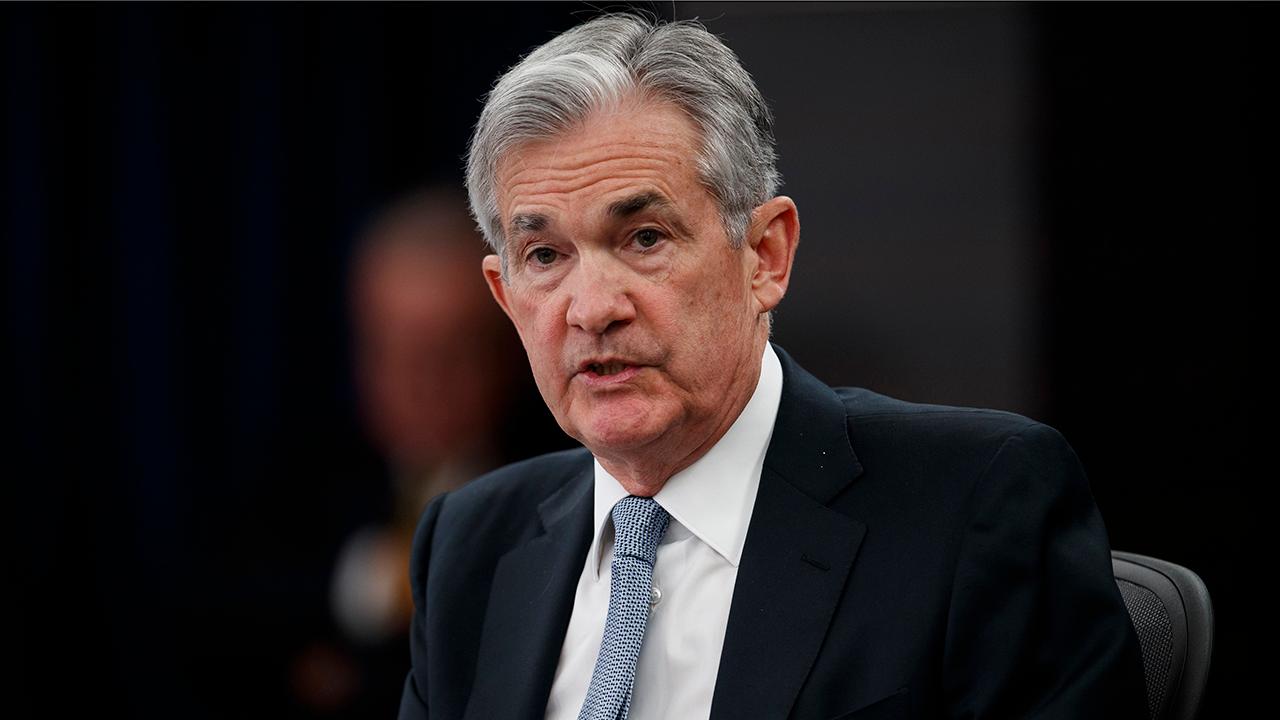Fed chair Jerome Powell says more rate hikes likely
Federal Reserve Chairman Jerome Powell said in his keynote speech at the annual gathering of global central bankers in Jackson Hole, Wyoming ,that he anticipates the central bank will continue on its current path of gradually raising interest rates, despite pressure from President Trump to do otherwise.
In his highly anticipated Friday address on the heels of a record-setting stock market week, Powell noted that while the U.S. economy is strong, the Fed is working to find a balance between the “shoals of overheating and premature tightening.”
"I see the current path of gradually raising interest rates as the FOMC's approach to taking seriously both of these risks," Powell said, according to a transcript released by the central bank.
“While inflation has recently moved up near 2 percent, we have seen no clear sign of an acceleration above 2 percent, and there does not seem to be an elevated risk of overheating,” Powell said. “This is good news, and we believe that this good news results in part from the ongoing normalization process.”
Mark Hamrick, a senior economic analyst with Bankrate.com, noted that Powell doesn’t appear to be looking to change expectations about interest rates in the near-term.
“That is, rates are still expected to rise a couple more times through the end of the year, unless the economic/financial backdrop changes dramatically,” Hamrick said in an emailed statement.
Policymakers at the central bank have already voted to hike the benchmark federal funds rate twice this year, and are expected to do so twice more in 2018, bringing the yearly total to four. Officials previously indicated that three rate hikes would come this year.
But in the face of a strengthening U.S. economy, investors were watching Powell closely on Friday morning to see whether he would address any political developments – like an international trade war between the U.S. and its traditional economic partners. That could lead the Fed to change course from its gradual interest rate hike plan if Powell seems concerned that it could rattle the economy.
Though he did not directly address the geopolitical turmoil, Powell did say that if strong growth in income and jobs continues, further gradual increases for the federal funds rate will “likely be appropriate.”
“My colleagues and I are carefully monitoring incoming data,” he said. “And we are setting policy to do what monetary policy can do to support continued growth, a strong labor market, and inflation near 2 percent.”
Higher rates can impact consumers by increasing borrowing costs, which have already skyrocketed. Auto loan rates are at a nine-year high, and 30-year fixed mortgage rates recently climbed to their highest level in seven years.
During an interview with FOX Business, the head of the Kansas City Federal Reserve Esther George suggested that the $20 trillion U.S. economy would not be affected if trade tensions did not surpass the $50 billion in actual and announced tariffs on Chinese goods (and the tariffs on imports from other countries). But, she warned that uncertainty could stunt spending by businesses, and therefore slow economic growth.
The highly anticipated Jackson Hole conference will also give Powell his first chance publicly to respond to Trump, who this week said he disagrees with the Fed’s decision to raise interest rates and should instead focus on “what’s good for the country.” Trump also criticized Powell -- who was selected by the president to replace Janet Yellen as Fed chair -- saying he was “not thrilled” with him.
Although George noted that “expressions of angst” from the White House when there are higher interest rates is not necessarily unique to the Trump administration, she said the Fed will ultimately remain faithful to preserving the value of the U.S. dollar.
“Congress understood this tension might exist between a central bank, which is responsible for the money supply, and those that have other angles in the economy,” she said. “And so they put important firewalls in place to allow an institution like the Fed to keep its focus on the public interest and the long-run nature of the economy.”
The Fed’s next scheduled meeting is set for late September, when it’s expected to raise rates again and issue an outlook for proposed rate hikes over the next coming years.




















